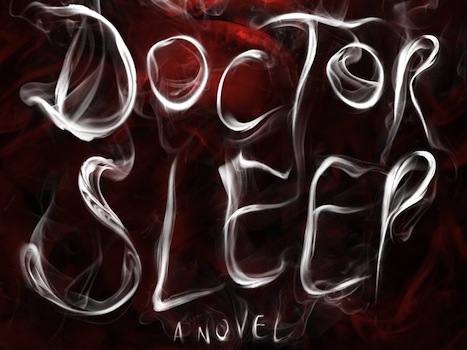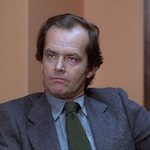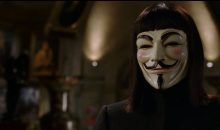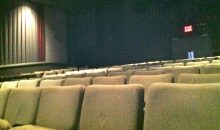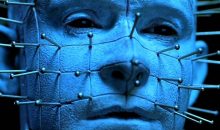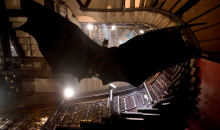Review: Dr. Sleep
Stephen King’s sequel to one of his most beloved books is decent enough, although it’s tough not to see its publication as a swipe at Stanley Kubrick.
Is twelve too early to read about haunted hotels, gypsy curses, and dormant aliens from outer space? I was twelve when I read my first batch of Stephen King novels. Those books (Thinner, The Tommyknockers, and The Shining) shaped my existence in the way influential things do at such a tender age. For the first time I truly had a hero I could emulate. After reading King I knew I wanted to be a writer, and my first forays into the profession were hamfisted short horror stories that captured King’s penchant for gore while completely ignoring his nuance for characterization.
Fast forward twenty years. I’ve grown up and read 95 percent of King’s output. I’ve come to appreciate his characterization, while gaining insight into his writing style. King has spent his entire career writing and rewriting his own autobiography, in the guise of genre fiction. You can see it in his characters. While King lived in Colorado, so did the Torrance family from The Shining. When he started snowbirding to Florida, King published Duma Key, set in the Florida Keys. King’s stories are filled with his own personal fears and prejudices, which makes them all the more real, as his plots are grounded in very basic, universal, terrors.
It’s interesting trying to pick apart Dr. Sleep, King’s 2013 sequel to 1977’s The Shining, to find out what scares the American horror master these days. I’d guess that getting old, dying, and suffering from alcoholism (or on a more basic level, falling back into old patterns) run high up on Mr. King’s list. Consider: Dr. Sleep’s protagonist is Dan Torrance, last seen as a little boy with psychic powers in The Shining. Dan is all grown up and struggles with a drinking problem. He gets a job at a hospice, where he uses his talents to help the elderly patents die peacefully. As he works the AA system, Dan meets Abra, a little girl who is the most powerful psychic Dan has ever encountered. Unfortunately for Abra, she has also come under the attention of the True Knot, a group of long-lived psychic vampires, who roam the country in search of prey, often young psychic children, whose energy the True Knot feeds on. As a child just beginning to understand her powers, Abra reaches out to Dan for guidance and help to defend against the True Knot.
King has been publishing since the 70s, so it’s natural that Dr. Sleep contains thematic elements of his previous books. Big Bad preying on children? See Pennywise the Clown from It. Psychic powers? Take your pick, from Carrie to Everything’s Eventual. Nomadic evil? Try the gypsies from Thinner. King is his own personal Simpsons-already-did-it trope; unless he decides to switch genres and start writing romances his books will always contain thematic elements of his other books.
Yet while this literary recycling has worked for King in the past (most notably in 2008’s Duma Key and 2011’s 11/22/63) Dr. Sleep never seems to rise above the sum of its parts. It’s a satisfying conclusion to a story King started almost forty years ago, but it isn’t ground breaking. Does it need to be? Perhaps not. Stephen King fans will certainly enjoy Dr. Sleep, as will anyone who loves stories grounded in fully realized characters. No one writes a character quite like King, and he is a master at getting you to empathize with everyone, including the villains.
What hurts Dr. Sleep is the notion that King seems to be writing mostly for himself here. He’s made no secret of his dislike for Stanley Kubrick’s movie version of The Shining (going so far as to reboot The Shining as a miniseries in 1997). Much of King’s disappointment falls at the feet of Jack Nicholson, the quintessential crazy actor who didn’t start out sane enough at the beginning of the story to satisfy King’s slow-descent-into-madness plot points. To counter Kubrick, Dr. Sleep contains numerous allusions to events of the novel not found in Kubrick’s film, such as the hedge animals or Dick Hallorann’s book-fate. It feels as if King feels compelled to re-assert his control over his own canon, which comes off as petty and a bit needless. Like George Lucas making Greedo shoot first, Dr. Sleep contains subtle revisions to anyone familiar with The Shining only through Kubrick’s novel, to the point that if you haven’t read The Shining at all, I’d suggest doing so before tackling Dr. Sleep. And my advice to King? Let it go, man. Instead of fretting about how Jack Nicholson was all wring for the part of Jack Torrance, I’d be more worried about the tarnishing of your legacy due to the 9 films in the Children of the Corn series.
tl;drs
Blank is a blanker version of blank: Dr. Sleep is Stephen King’s version of changing the “Yub Nub” song at the end of Jedi.
Recommended if you like: The Shining. (The book, not the movie. Because King hates the movie.)
Better than I expected: Abra. For a dude in his sixties, King writes a convincing pre-teen girl.
Worse than I hoped: The main villains just didn’t seem scary enough, and there were too many of them for me to keep track of, let alone be afraid of.
Dr. Sleep would work better as a(n): miniseries, maybe? Something in the 4-12 hour range; there isn’t enough material to push it past that.
Verdict: For King completists and fans of The Shining novel.

